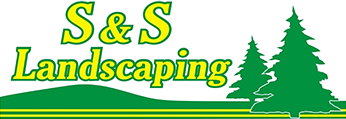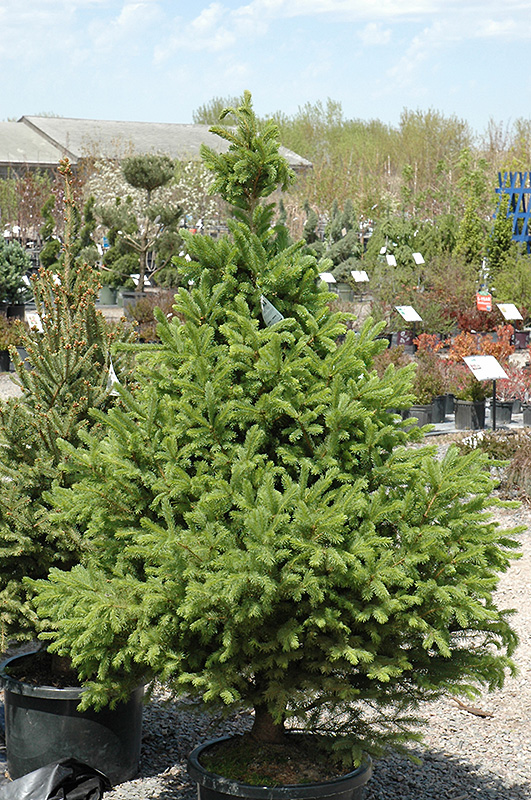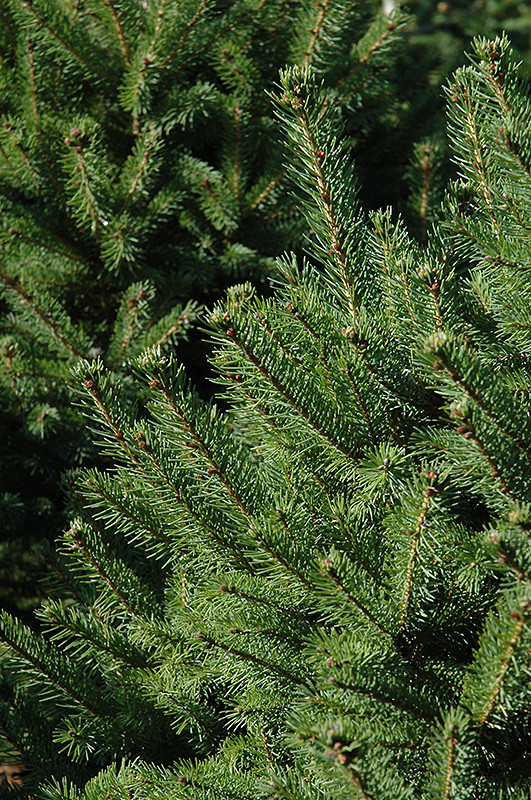Plant Finder
S & S Landscaping
North Star Spruce
Picea glauca 'North Star'
Height: 12 feet
Spread: 4 feet
Sunlight:
![]()
Hardiness Zone: 3a
Description:
An excellent choice for its resilience to harsh winter conditions, this sturdy, compact evergreen produces a densely branched, classic pyramid covered with medium green needles; great for larger exposed spaces, mixed borders and beds
Ornamental Features
North Star Spruce is a dwarf conifer which is primarily valued in the landscape or garden for its distinctively pyramidal habit of growth. It has rich green evergreen foliage which emerges light green in spring. The needles remain green throughout the winter.
Landscape Attributes
North Star Spruce is a dense multi-stemmed evergreen shrub with a distinctive and refined pyramidal form. Its relatively fine texture sets it apart from other landscape plants with less refined foliage.
This is a relatively low maintenance shrub. When pruning is necessary, it is recommended to only trim back the new growth of the current season, other than to remove any dieback. It has no significant negative characteristics.
North Star Spruce is recommended for the following landscape applications;
- Accent
- Vertical Accent
- General Garden Use
Planting & Growing
North Star Spruce will grow to be about 12 feet tall at maturity, with a spread of 4 feet. It tends to fill out right to the ground and therefore doesn't necessarily require facer plants in front, and is suitable for planting under power lines. It grows at a slow rate, and under ideal conditions can be expected to live for 50 years or more.
This shrub should only be grown in full sunlight. It prefers to grow in average to moist conditions, and shouldn't be allowed to dry out. It is not particular as to soil type or pH. It is somewhat tolerant of urban pollution, and will benefit from being planted in a relatively sheltered location. This is a selection of a native North American species.



Share On: